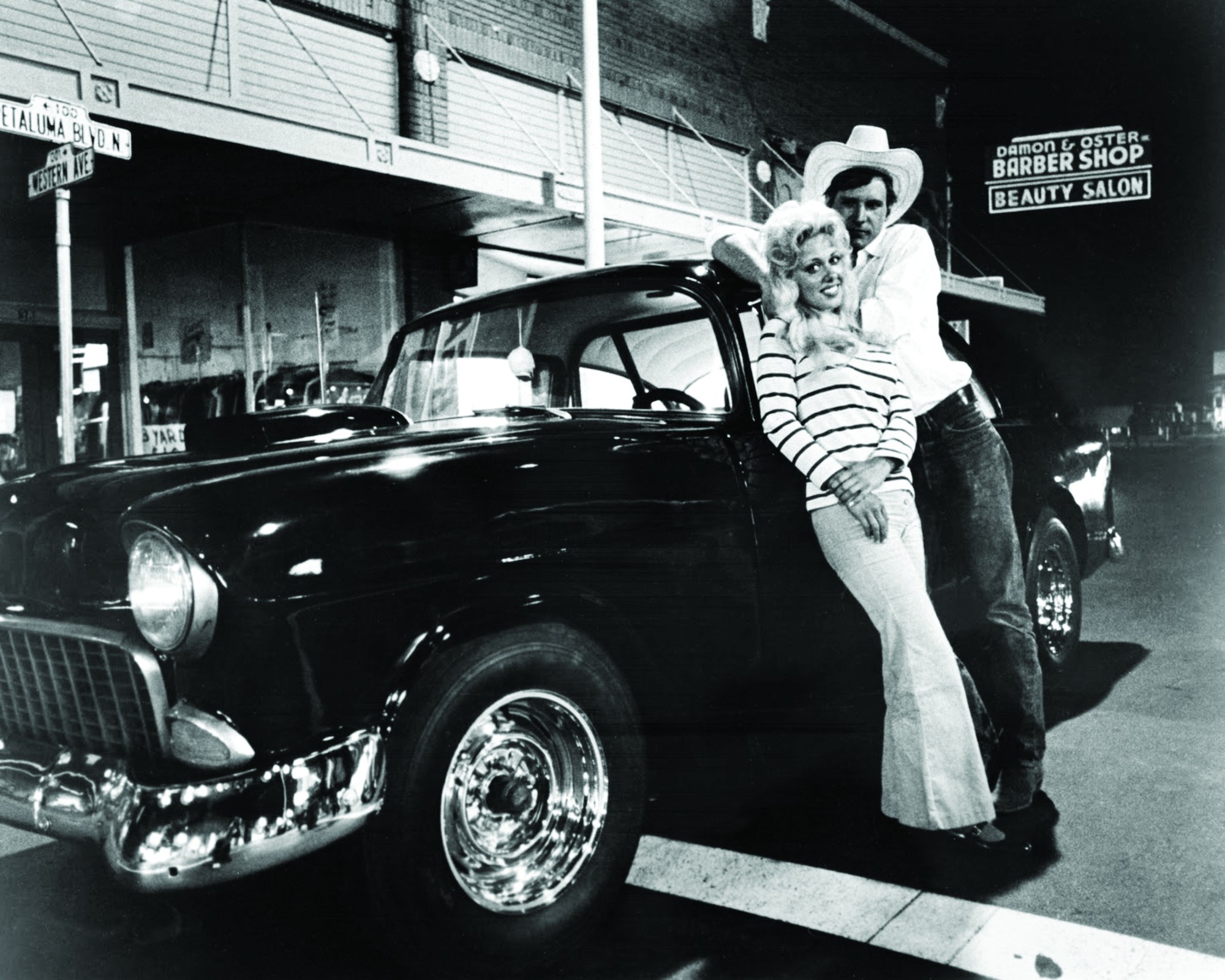Nostalgic America
18 Must-Watch Movies That Shaped Baby Boomer Culture
By Bruce Berns · November 27, 2024
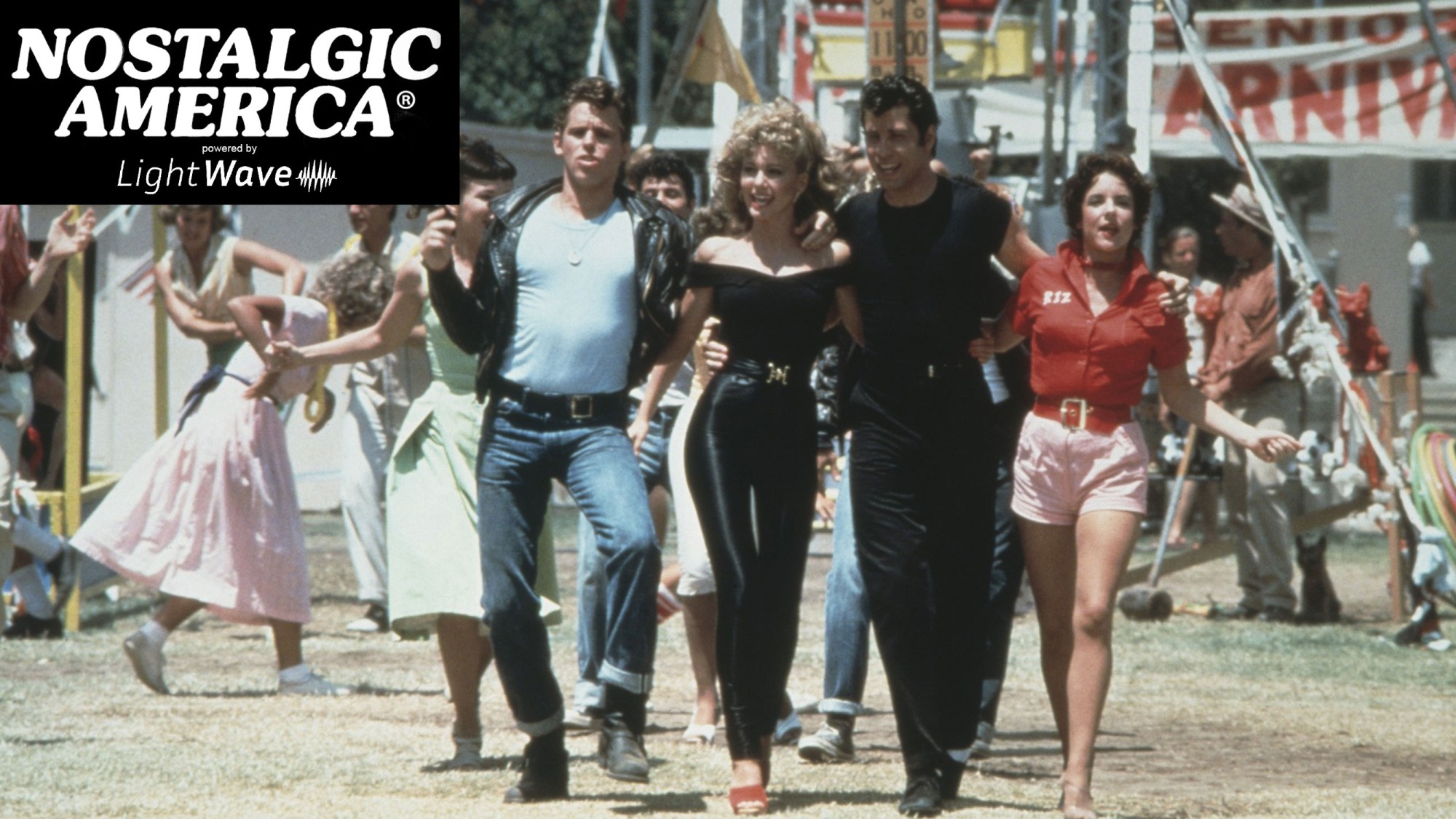
From rebellious road trips in Easy Rider to the interstellar wonder of Star Wars, these films not only entertained but also reflected the cultural shifts and ideals of their era. This list takes you on a cinematic journey through 18 unforgettable classics that defined a generation.
Whether it’s the heartwarming tunes of Mary Poppins or the gritty humor of MASH, each movie tells a story that continues to resonate with audiences today. Getty Images / Nostalgic America, Inc.
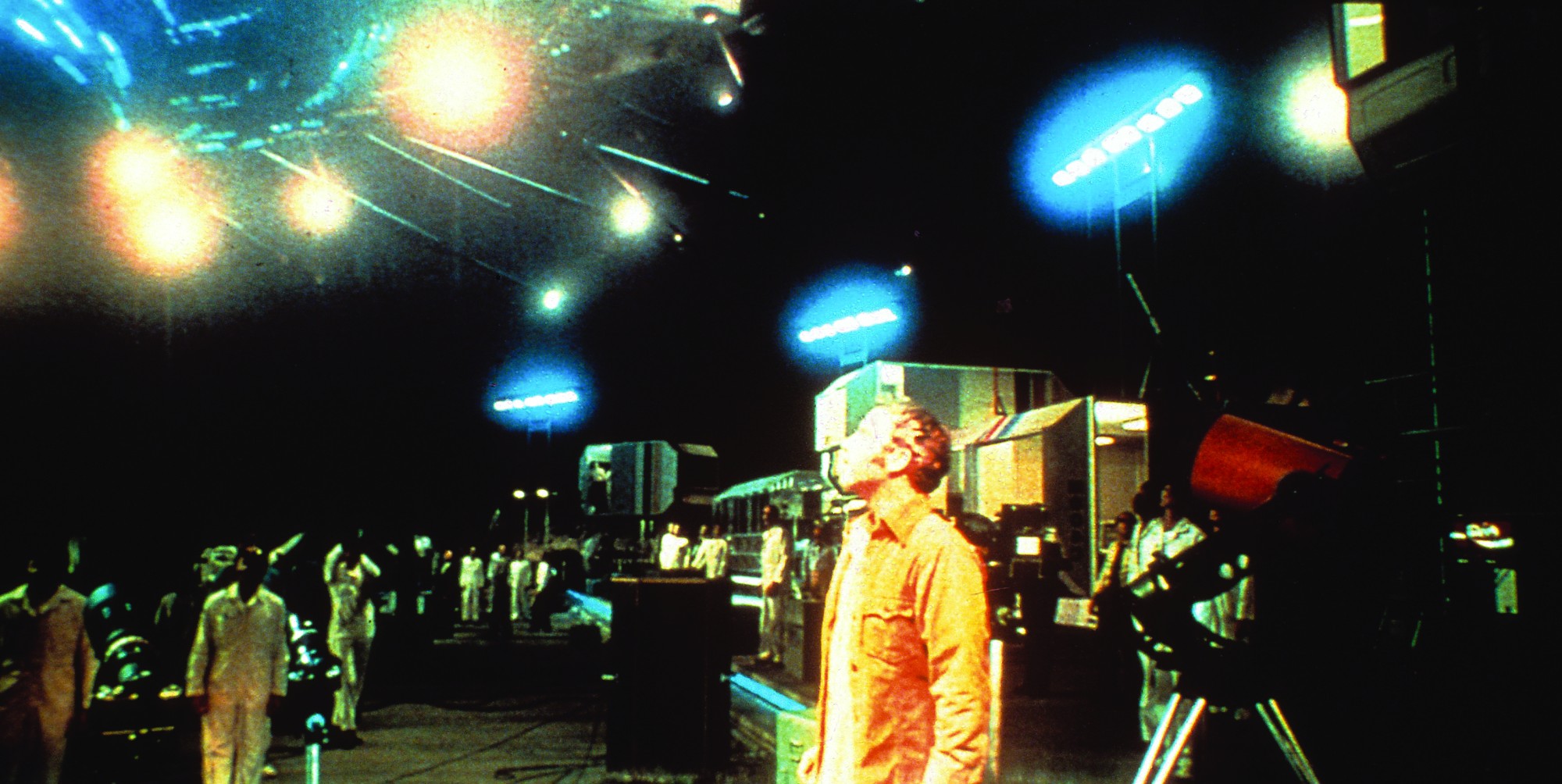
Close Encounters of the Third Kind (1977)
Steven Spielberg’s Close Encounters of the Third Kind is a visionary science fiction film that explores human contact with extraterrestrial life. Richard Dreyfuss stars as Roy Neary, an ordinary man whose life changes after an encounter with a UFO. Getty Images / Nostalgic America, Inc.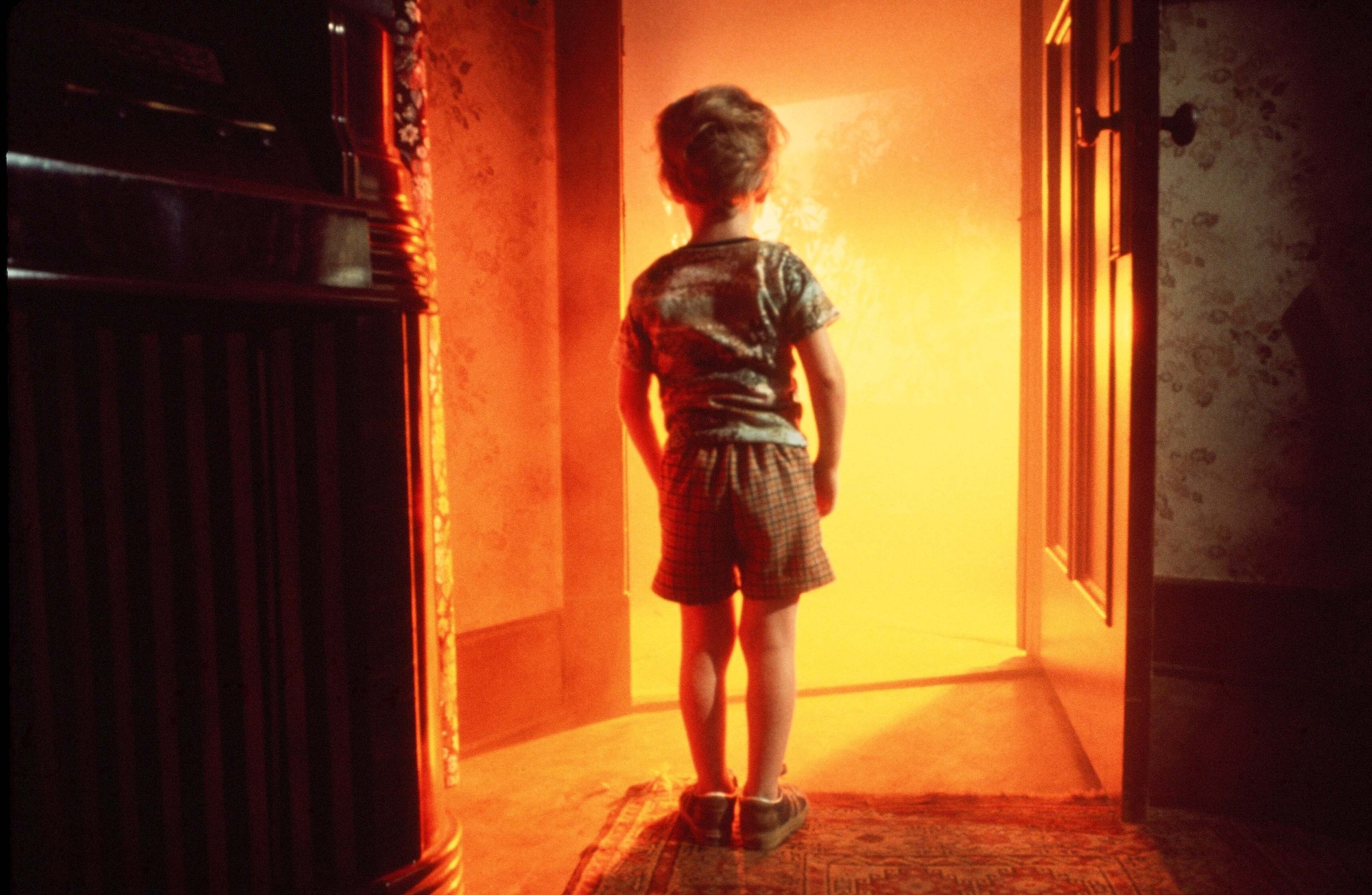
Close Encounters of the Third Kind (1977)
The film’s portrayal of curiosity, obsession, and awe culminates in the breathtaking climactic scene where humans communicate with aliens through music. Renowned for its special effects and John Williams’ mesmerizing score, the film struck a balance between spectacle and emotional storytelling. Close Encounters became a critical and commercial success, enhancing Spielberg’s reputation as a master of cinematic wonder. Getty Images / Nostalgic America, Inc.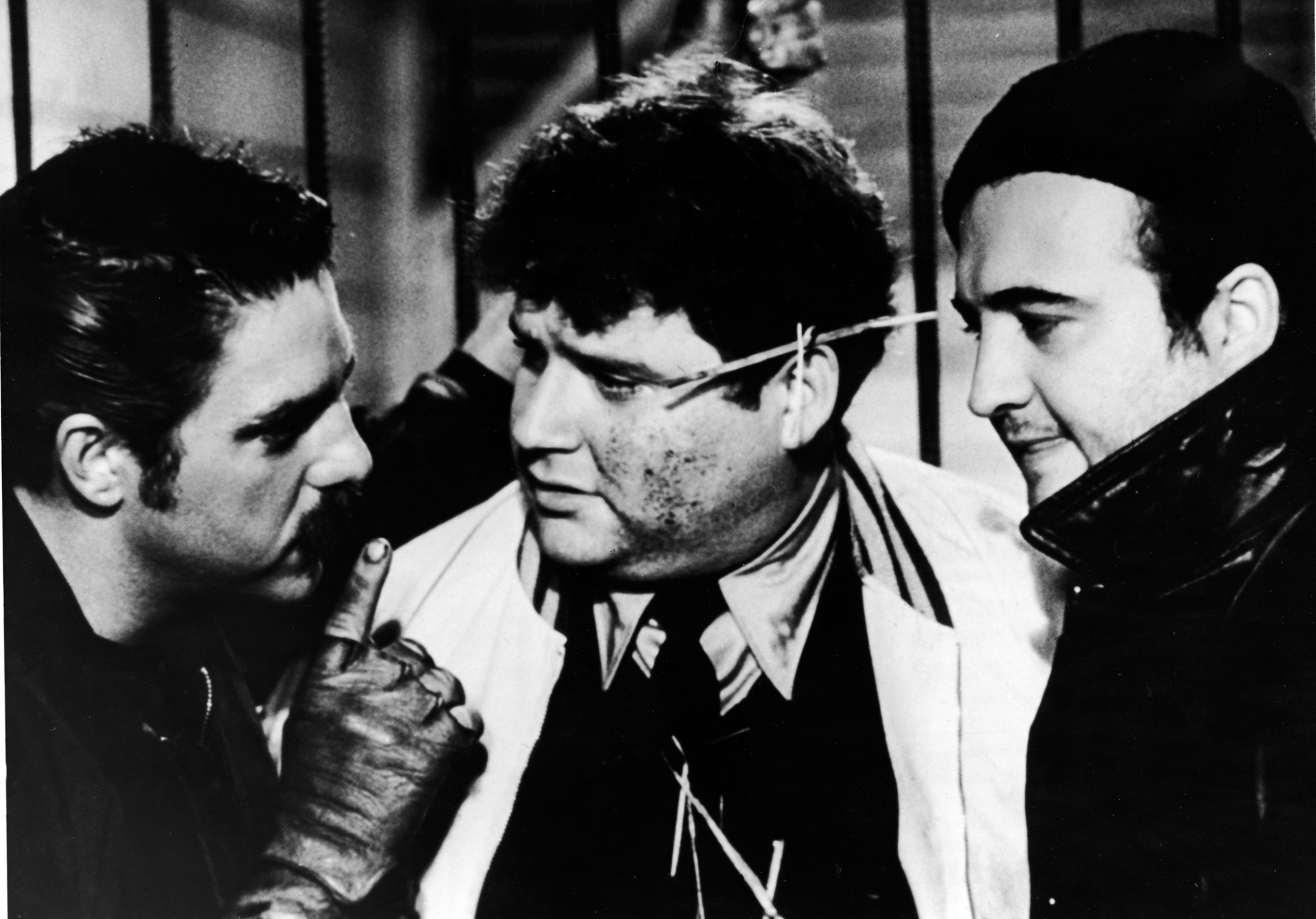
Animal House (1978)
Animal House, directed by John Landis, is a seminal comedy that chronicles the chaotic antics of the Delta Tau Chi fraternity at Faber College. Known for its irreverent humor, slapstick, and satirical take on college life, the film stars John Belushi as Bluto, whose wild persona embodies the fraternity’s rebellious spirit. The plot follows the Deltas as they clash with the college dean and rival fraternity. The movie’s influence on comedy films was immense, pioneering the “gross-out” genre and cementing its status as a cult classic. Its memorable quotes and outrageous scenes remain iconic in pop culture. Getty Images / Nostalgic America, Inc.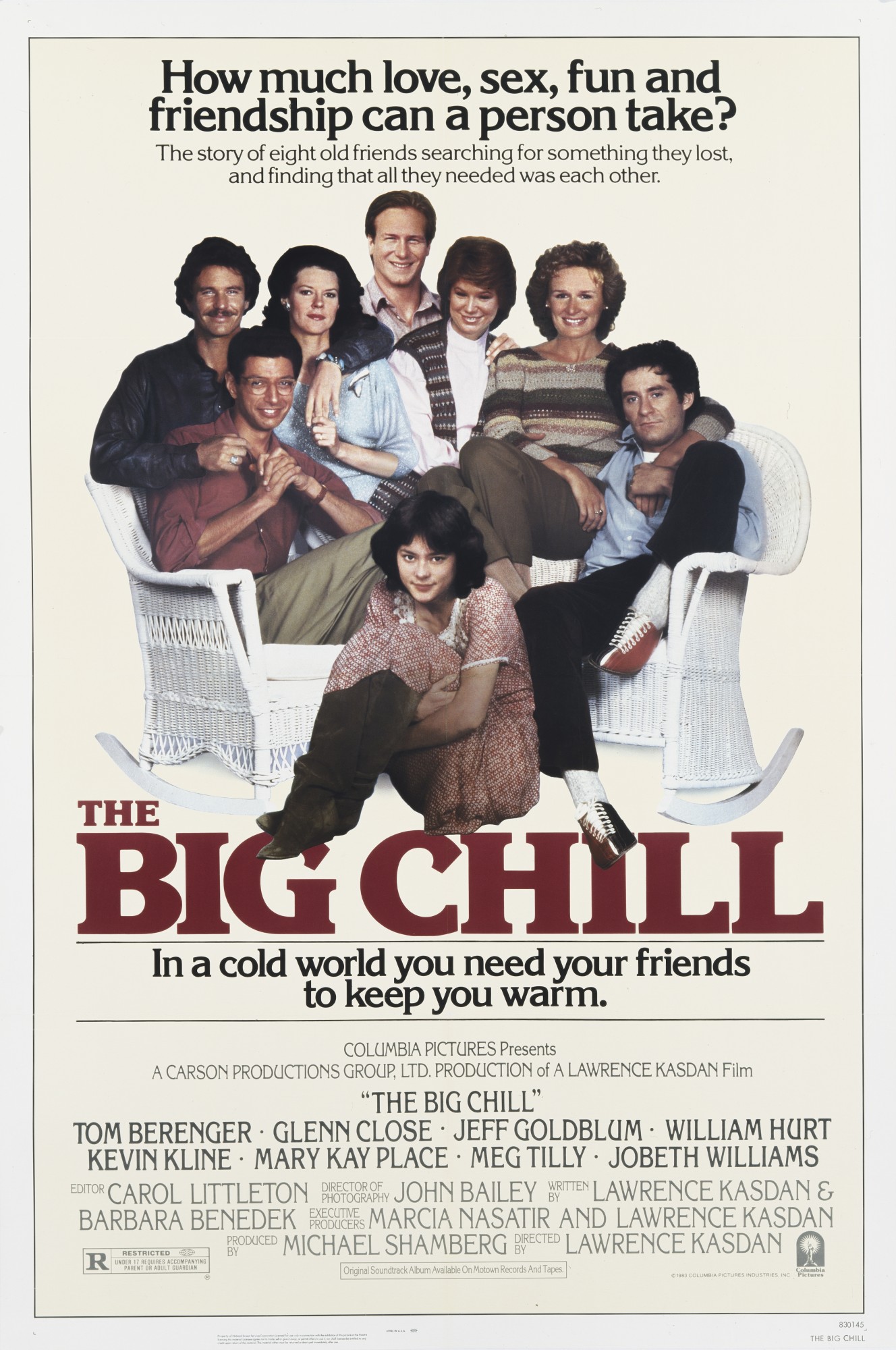
The Big Chill (1983)
Directed by Lawrence Kasdan, The Big Chill is a poignant dramedy about a group of college friends reuniting after 15 years to attend the funeral of a friend. Starring ensemble actors like Glenn Close, Kevin Kline, and William Hurt, the film explores themes of lost idealism, nostalgia, and the passage of time. Set against a backdrop of 1960s and 70s music, the soundtrack resonates deeply with the characters’ reflections on their pasts and how life has unfolded. The movie’s honest depiction of friendship, disillusionment, and middle-age struggles resonated with audiences, capturing the collective sentiment of the baby boomer generation. Getty Images / Nostalgic America, Inc.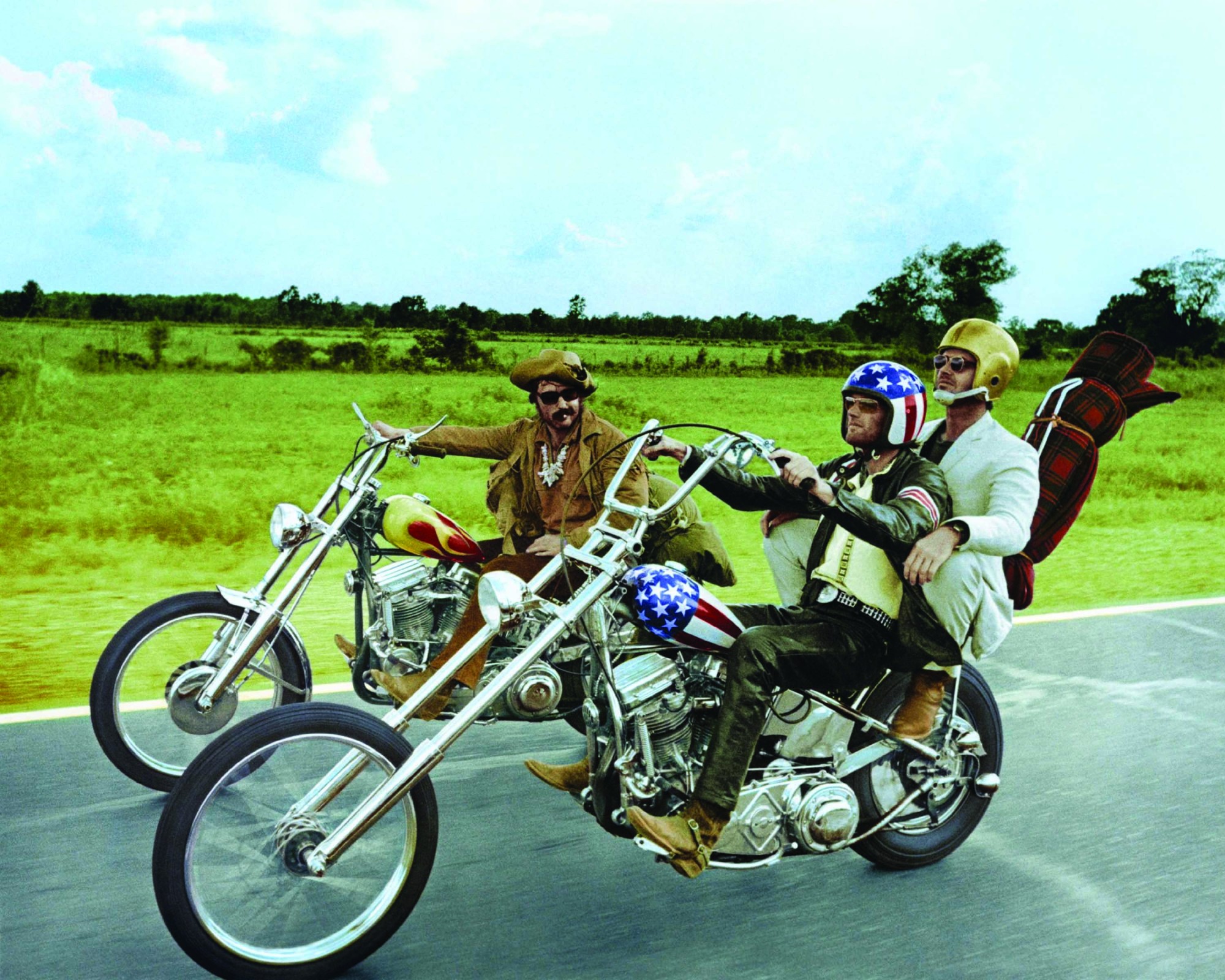
Easy Rider (1969)
Easy Rider, directed by Dennis Hopper, is a counterculture classic that epitomizes the free-spirited rebellion of the 1960s. Starring Peter Fonda and Hopper as two bikers traveling across America in search of freedom, the film paints a portrait of societal friction, individualism, and the pursuit of the American Dream. Jack Nicholson’s breakout role as George Hanson added depth to the narrative, reflecting the contrast between conformity and counterculture. The film’s raw storytelling, iconic soundtrack, and unconventional style captured the era’s disillusionment, influencing future filmmakers and redefining what independent cinema could achieve. Getty Images / Nostalgic America, Inc.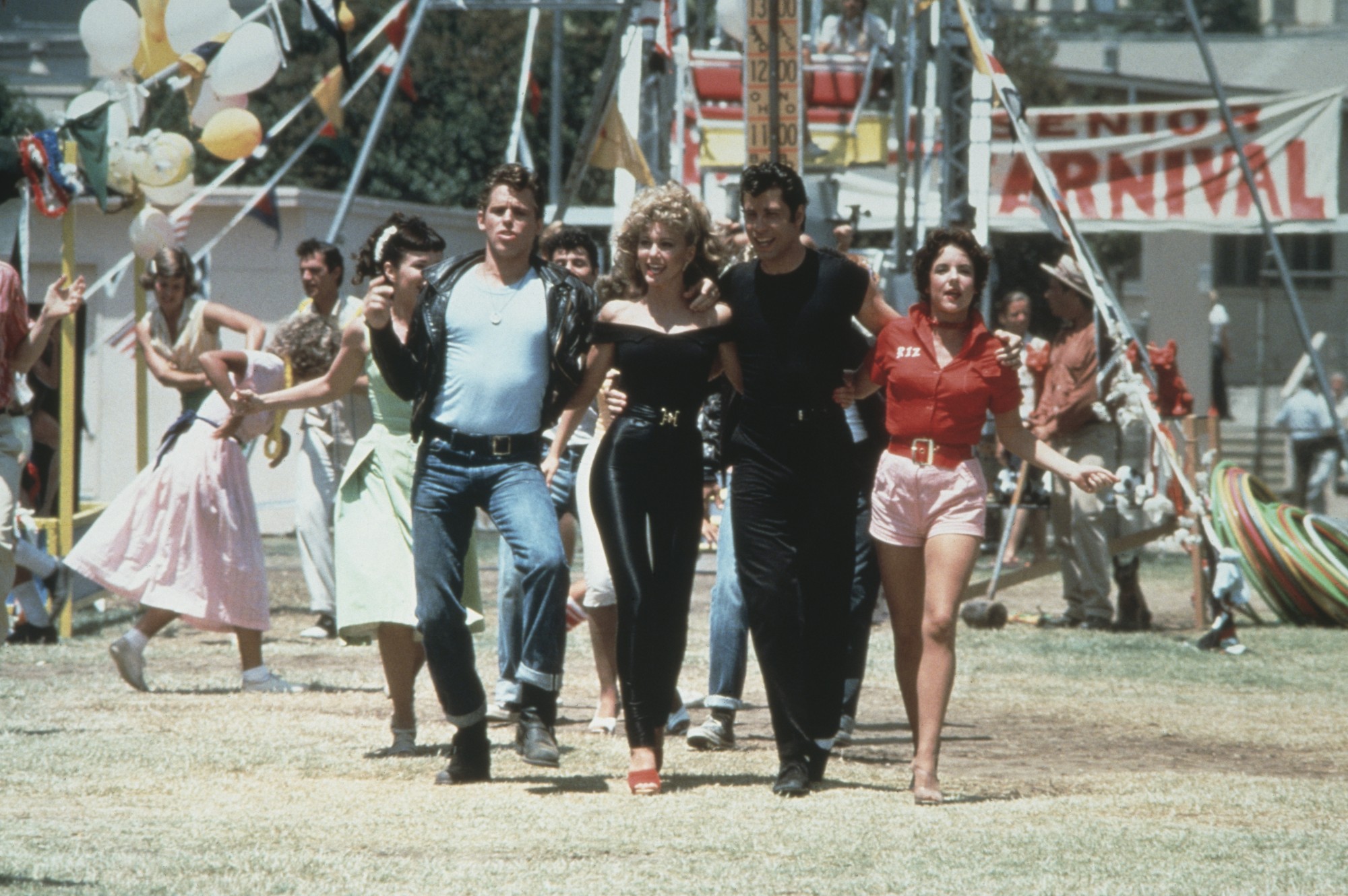
Grease (1978)
Grease is a beloved musical directed by Randal Kleiser, set in the 1950s and chronicling the high school romance between Danny Zuko (John Travolta) and Sandy Olsson (Olivia Newton-John). Filled with catchy songs like “Summer Nights” and “You’re the One That I Want,” the film showcases themes of teenage love, peer pressure, and identity Getty Images / Nostalgic America, Inc.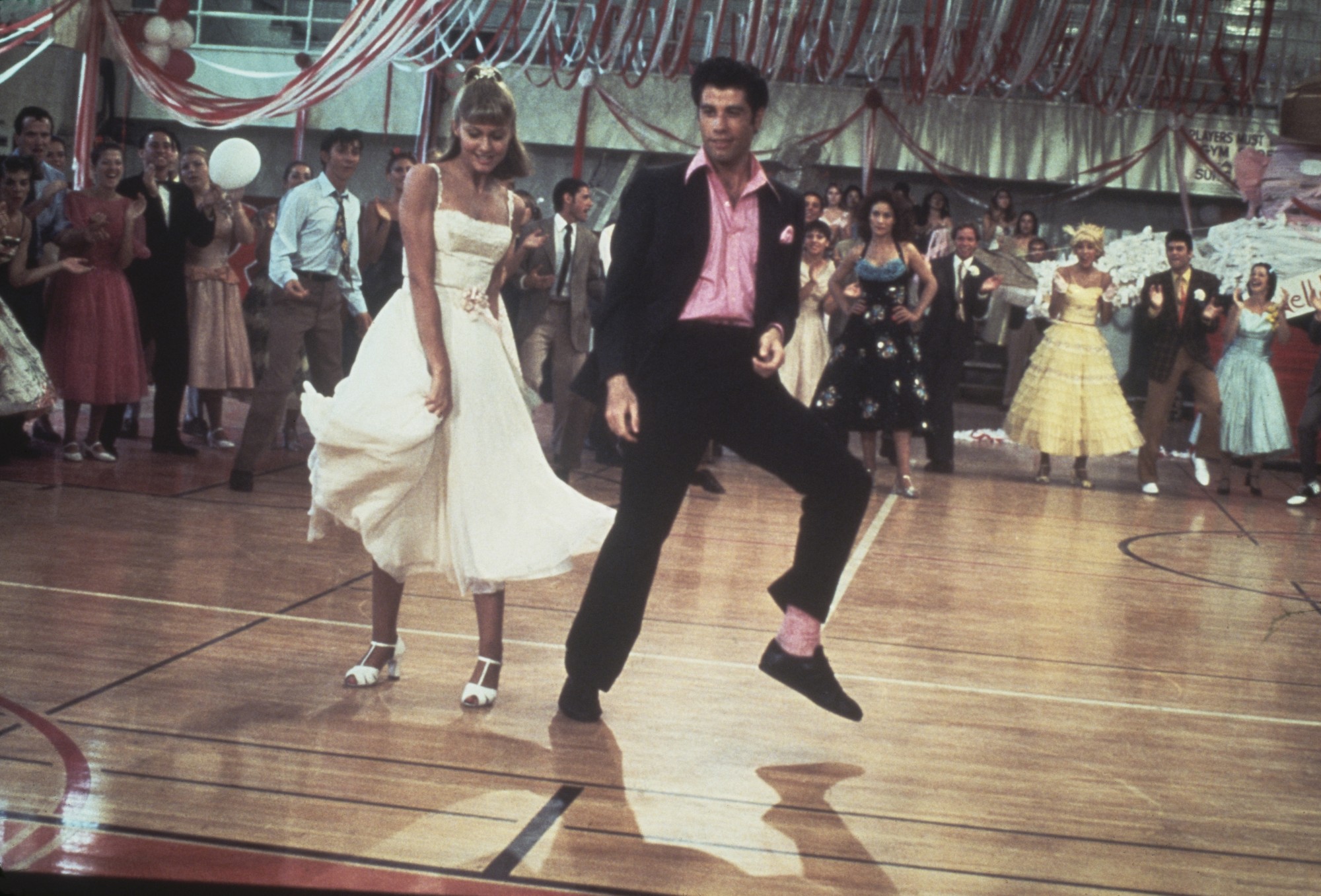
Grease starring John Travolta and Olivia Newton-John
Its dance numbers, colorful characters, and nostalgic portrayal of youth culture made it an instant hit. Grease became one of the highest-grossing musicals of all time, maintaining enduring popularity due to its charismatic performances, memorable soundtrack, and blend of humor and romance. Getty Images / Nostalgic America, Inc.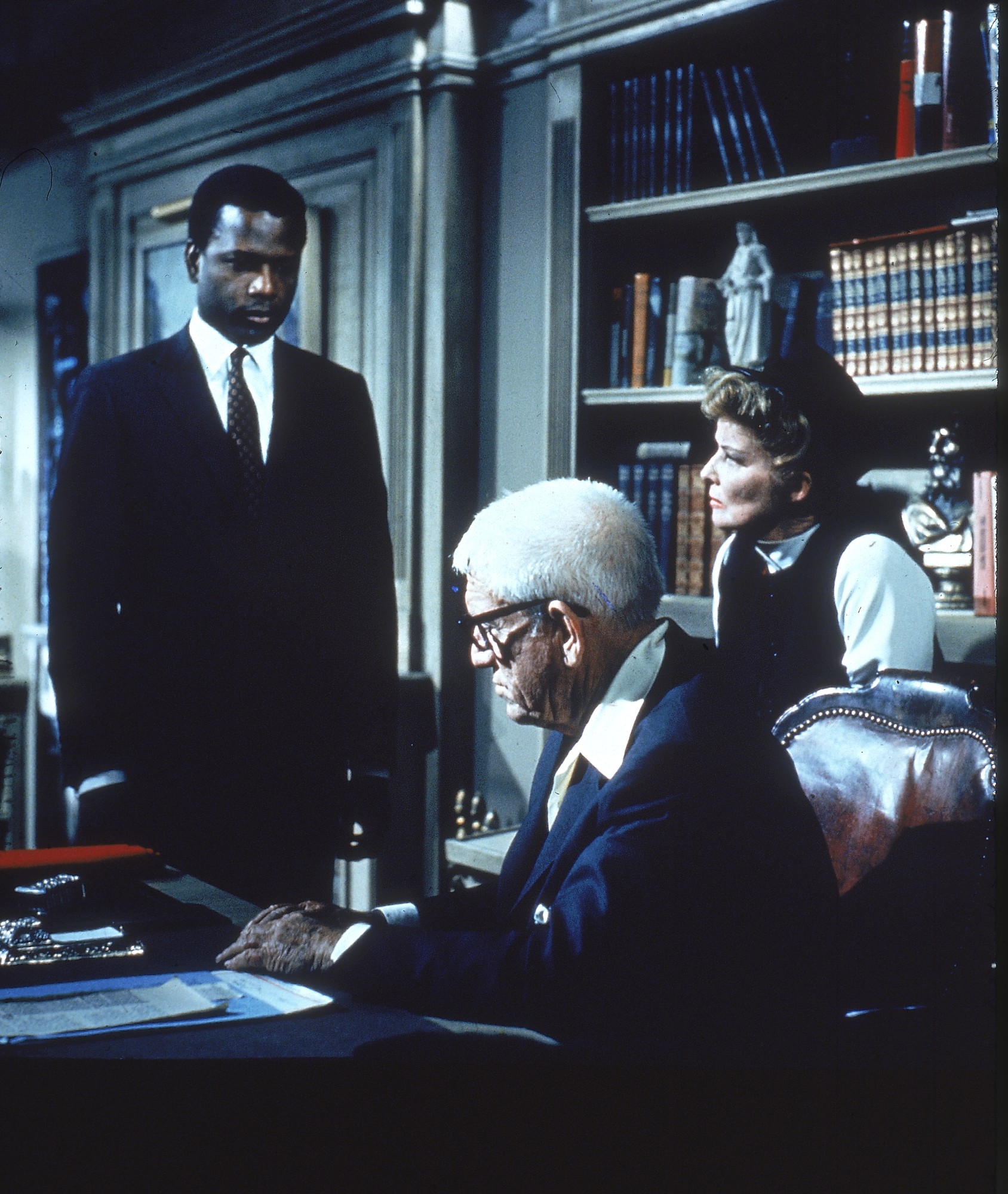
Guess Who’s Coming to Dinner (1967)
Directed by Stanley Kramer, Guess Who’s Coming to Dinner is a groundbreaking film that tackles interracial marriage and societal attitudes toward race. Starring Spencer Tracy, Katharine Hepburn, and Sidney Poitier, the movie follows a young interracial couple seeking approval from their families. The film’s portrayal of progressive ideas against the backdrop of 1960s civil rights tensions highlighted themes of love, prejudice, and generational conflict. Spencer Tracy’s final film performance and Hepburn’s emotional depth added gravitas to the narrative. Guess Who’s Coming to Dinner was critically acclaimed, prompting discussions about race relations and contributing to changing perceptions in America. Getty Images / Nostalgic America, Inc.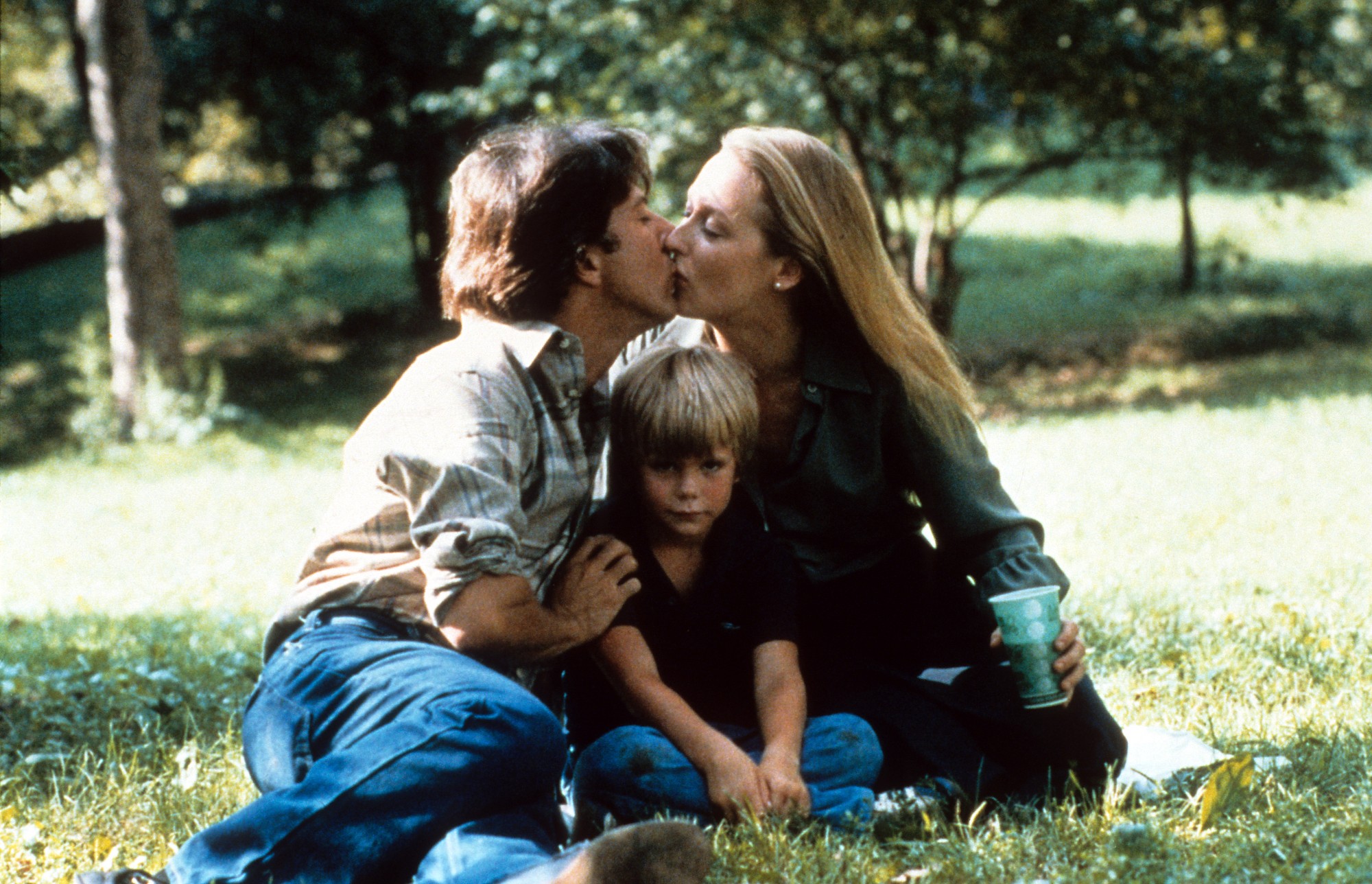
Kramer vs. Kramer (1979)
Dustin Hoffman and Meryl Streep star in Kramer vs. Kramer, directed by Robert Benton, which explores the emotional turmoil of divorce and custody battles. The film follows Ted Kramer, a work-focused father who must assume full responsibility for raising his son after his wife Joanna leaves. As Ted grows into his role as a single parent, Joanna returns to seek custody, igniting a legal struggle. Hoffman’s nuanced portrayal of a father evolving emotionally and Streep’s complex performance earned them both Oscars. The film won five Academy Awards, highlighting themes of parenthood, sacrifice, and personal growth with poignant realism. Getty Images / Nostalgic America, Inc.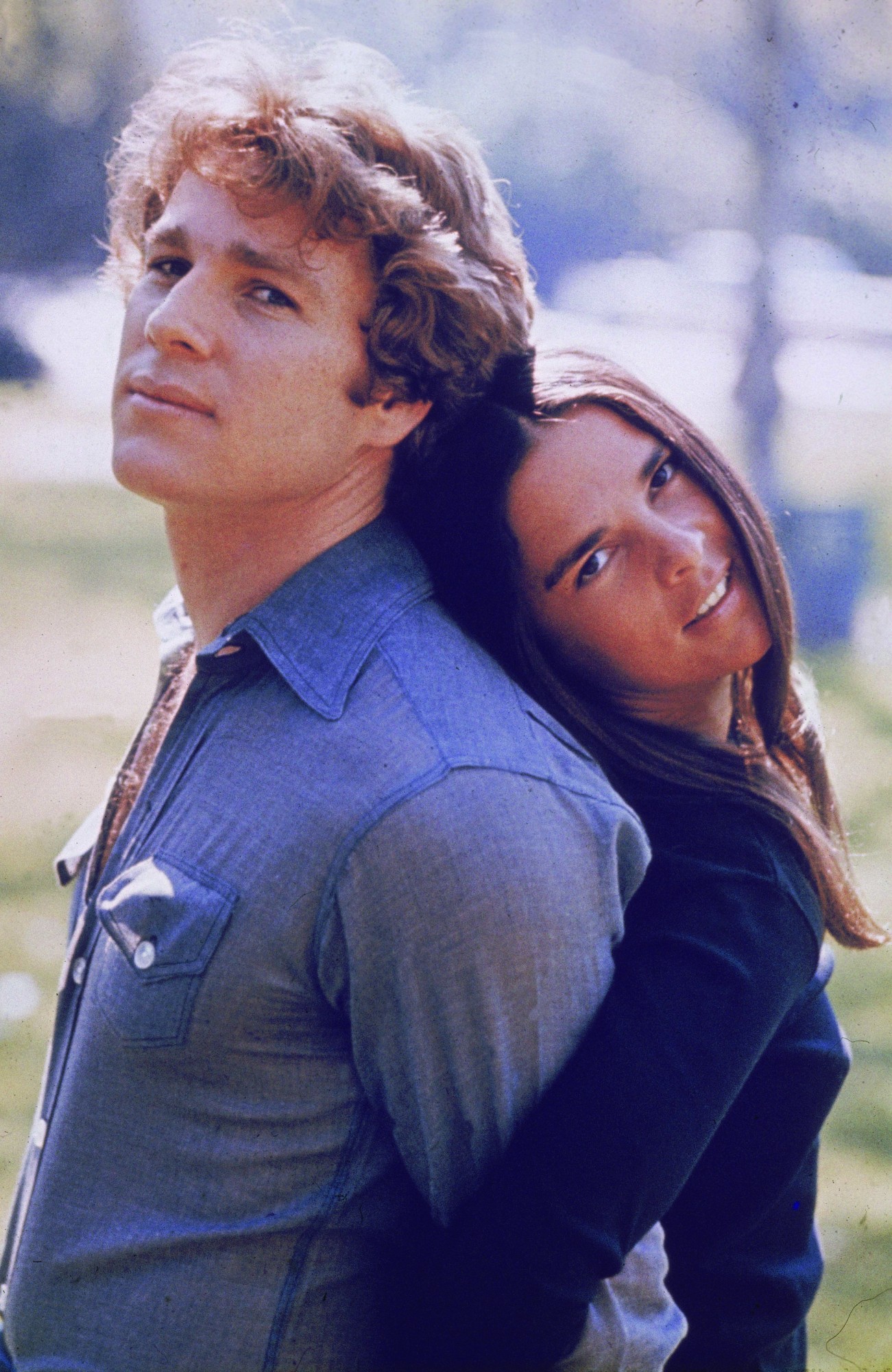
Love Story (1970)
Love Story, directed by Arthur Hiller and based on Erich Segal’s novel, is a romantic drama that tells the story of Oliver Barrett IV (Ryan O’Neal) and Jennifer Cavalleri (Ali MacGraw), a couple from different social backgrounds. Their passionate relationship faces challenges, including familial disapproval and financial struggles, culminating in Jennifer’s tragic illness. The film’s line “Love means never having to say you’re sorry” became iconic. Love Story was a box office hit, resonating with audiences for its emotional narrative and compelling performances. Its depiction of love, loss, and resilience made it a hallmark of 1970s cinema. Getty Images / Nostalgic America, Inc.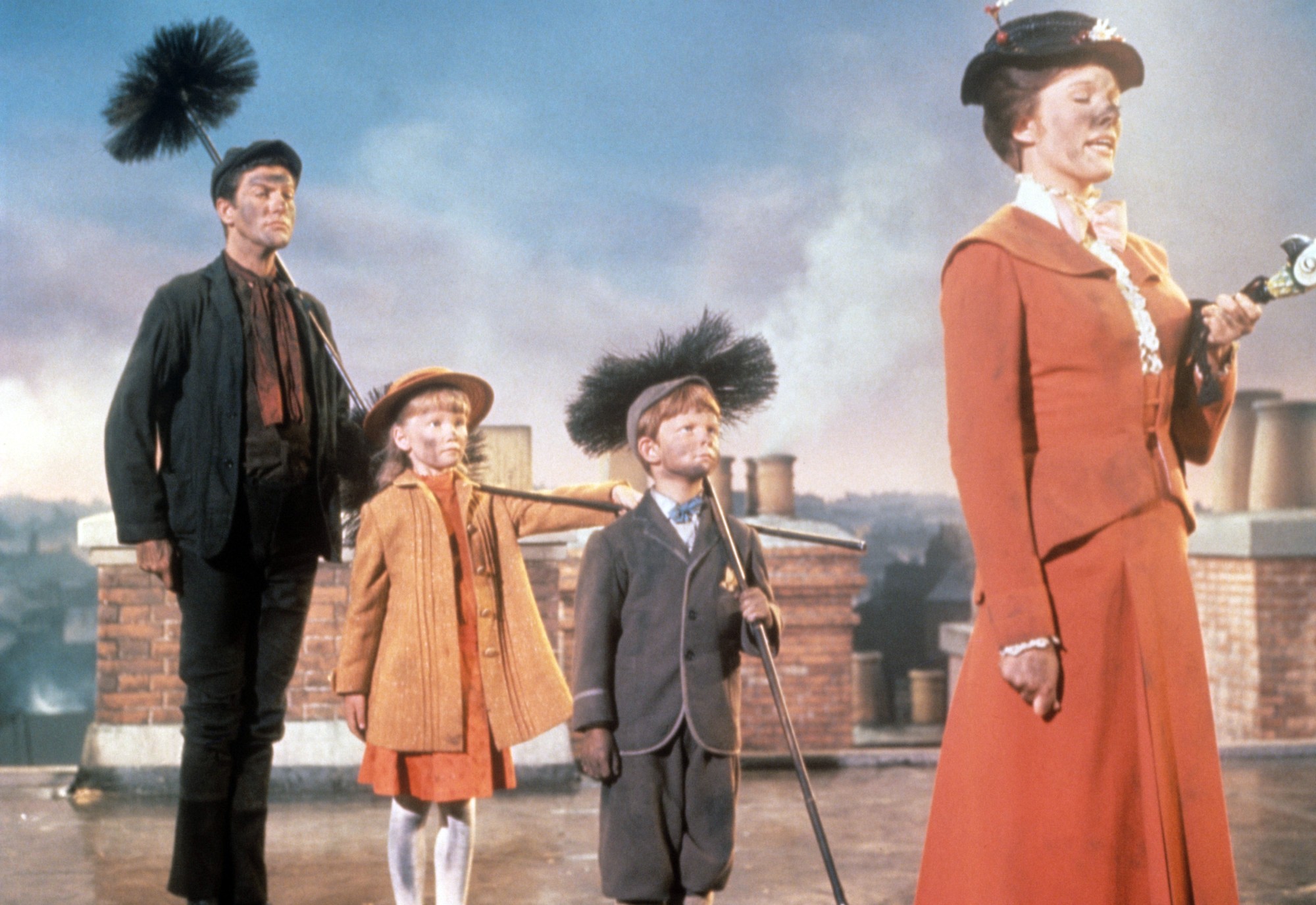
Mary Poppins (1964)
Mary Poppins, directed by Robert Stevenson and starring Julie Andrews, is a cherished Disney musical that tells the story of a magical nanny who arrives to bring joy and discipline to the Banks family. The film’s whimsical blend of live-action and animation, enchanting musical numbers like “Supercalifragilisticexpialidocious,” and Andrews’ charismatic performance captivated audiences. Getty Images / Nostalgic America, Inc.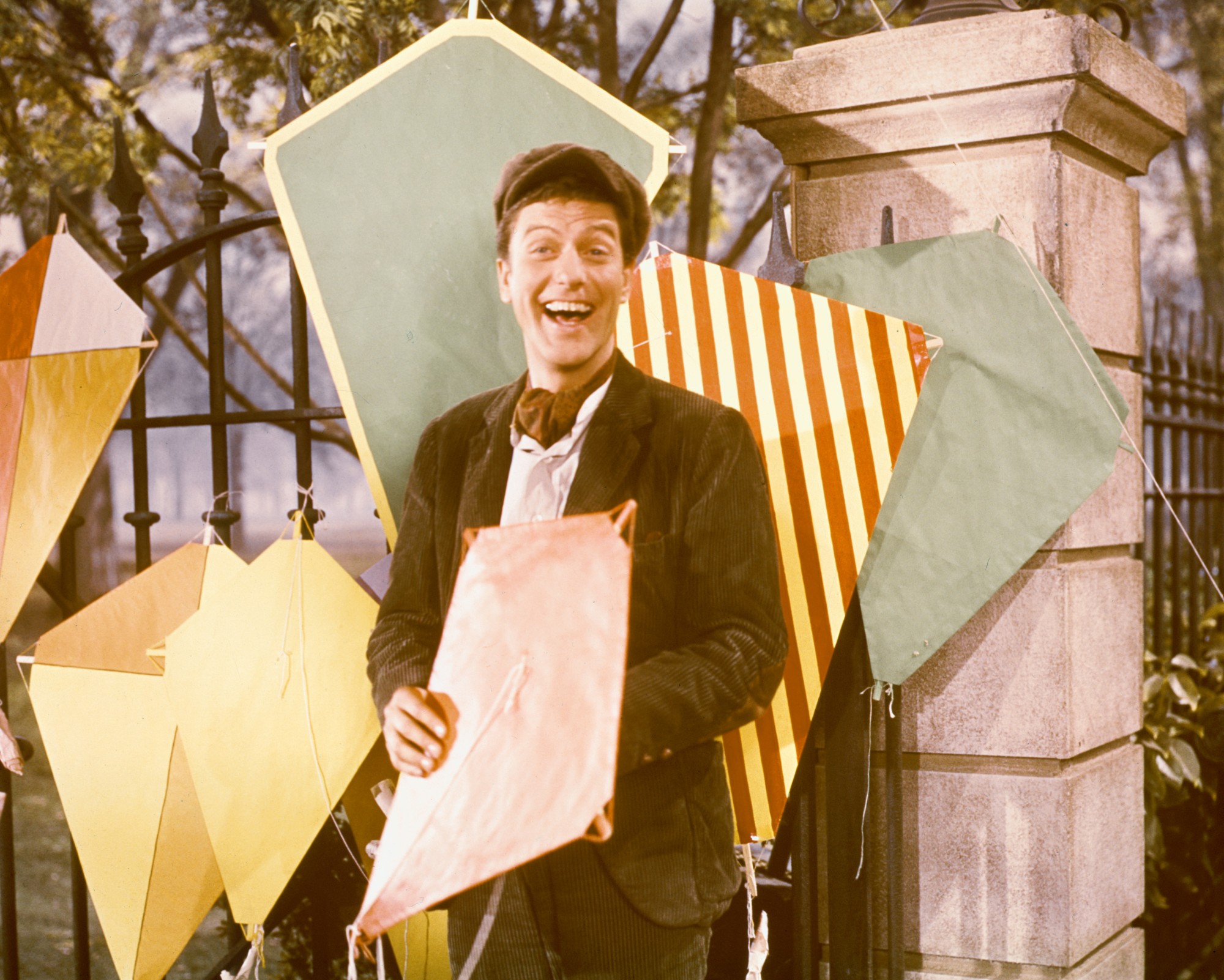
Dick Van Dyke co-starred as Bert
Dick Van Dyke co-starred as Bert, the cheerful chimney sweep. The movie’s themes of family, imagination, and kindness earned it critical acclaim and five Academy Awards, including Best Actress for Andrews. Mary Poppins remains a beloved classic, celebrated for its creativity and enduring messages. Getty Images / Nostalgic America, Inc.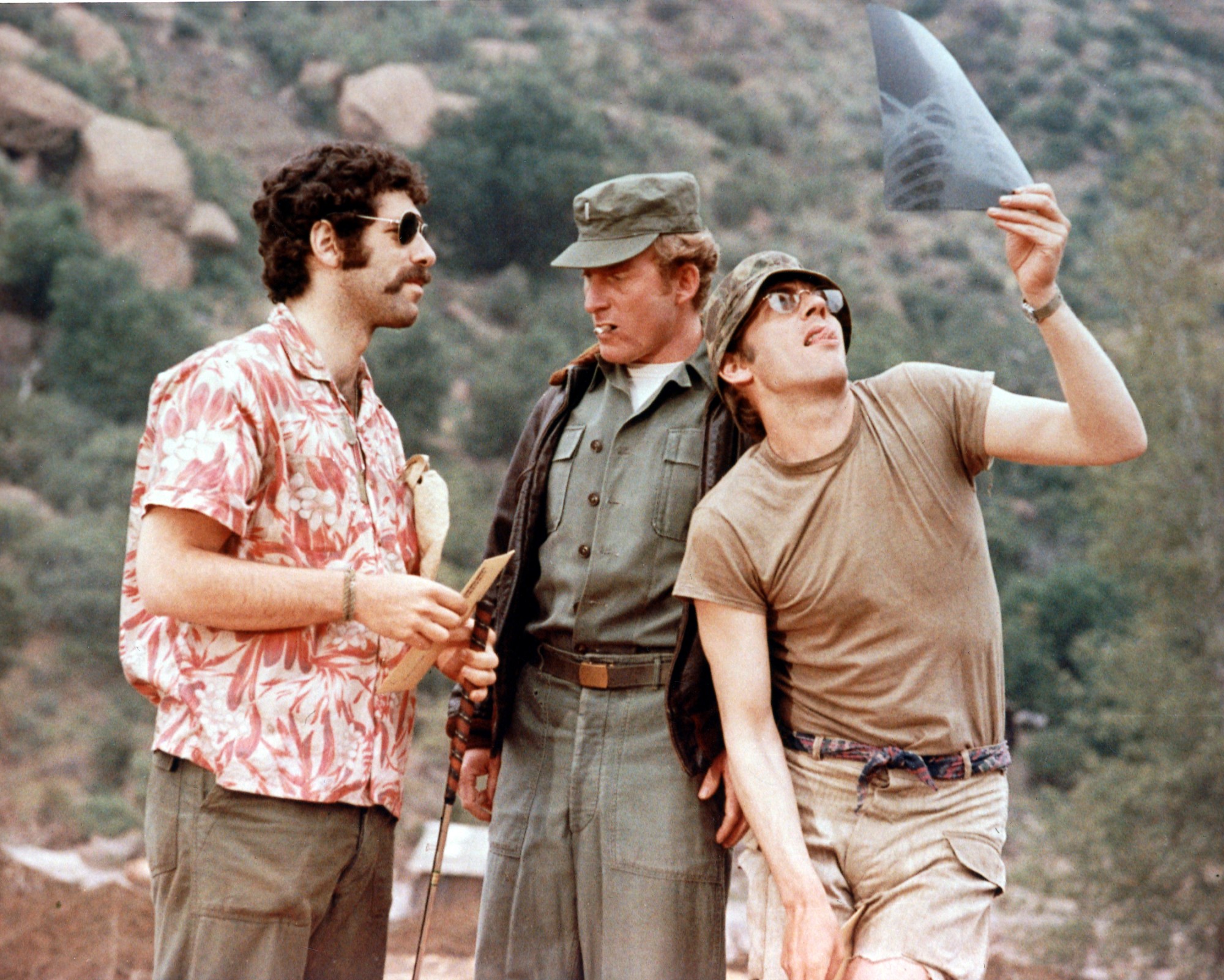
MASH (1970)
Directed by Robert Altman, MASH is a dark comedy set during the Korean War that follows the antics of doctors and staff at a mobile army surgical hospital. Starring Donald Sutherland as Hawkeye Pierce and Elliott Gould as Trapper John, the film satirizes the absurdities of war, blending humor with poignant commentary on the human cost of conflict. Known for its improvisational style and ensemble cast, MASH set the tone for future war satires and inspired a long-running TV series. The movie’s irreverence, unique storytelling, and anti-war sentiment struck a chord with audiences during the Vietnam War era. Getty Images / Nostalgic America, Inc.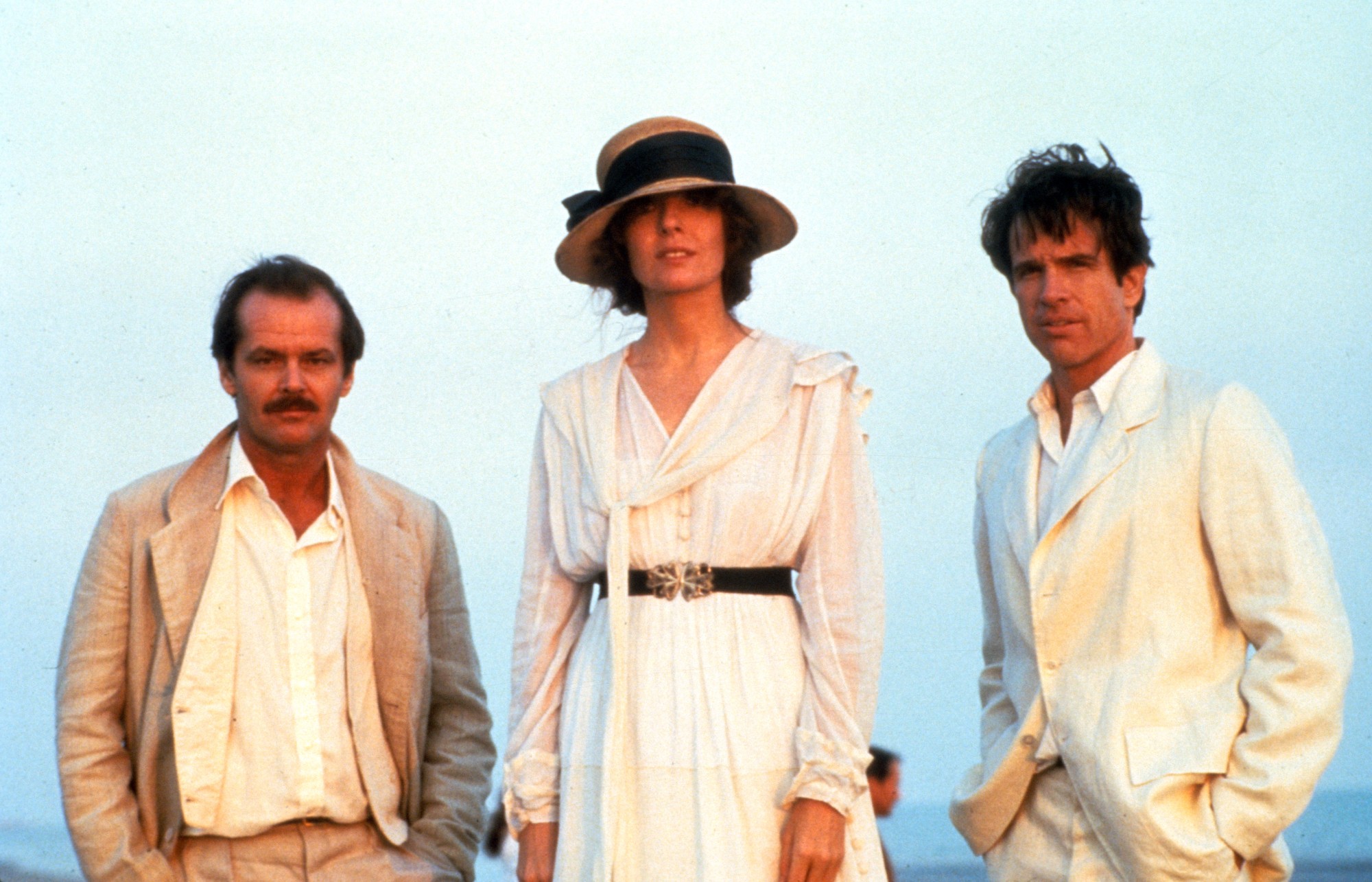
Reds (1981)
Reds, directed by and starring Warren Beatty, is an epic historical drama that chronicles the life of journalist and activist John Reed, author of Ten Days That Shook the World. The film follows Reed’s passionate involvement in the Bolshevik Revolution and his tumultuous relationship with feminist writer Louise Bryant (Diane Keaton). Blending drama with documentary-style interviews, Reds won three Academy Awards, including Best Director for Beatty. The film’s ambitious narrative, historical accuracy, and powerful performances by Beatty, Keaton, and Jack Nicholson made it a standout portrayal of political idealism, love, and sacrifice during a turbulent era. Getty Images / Nostalgic America, Inc.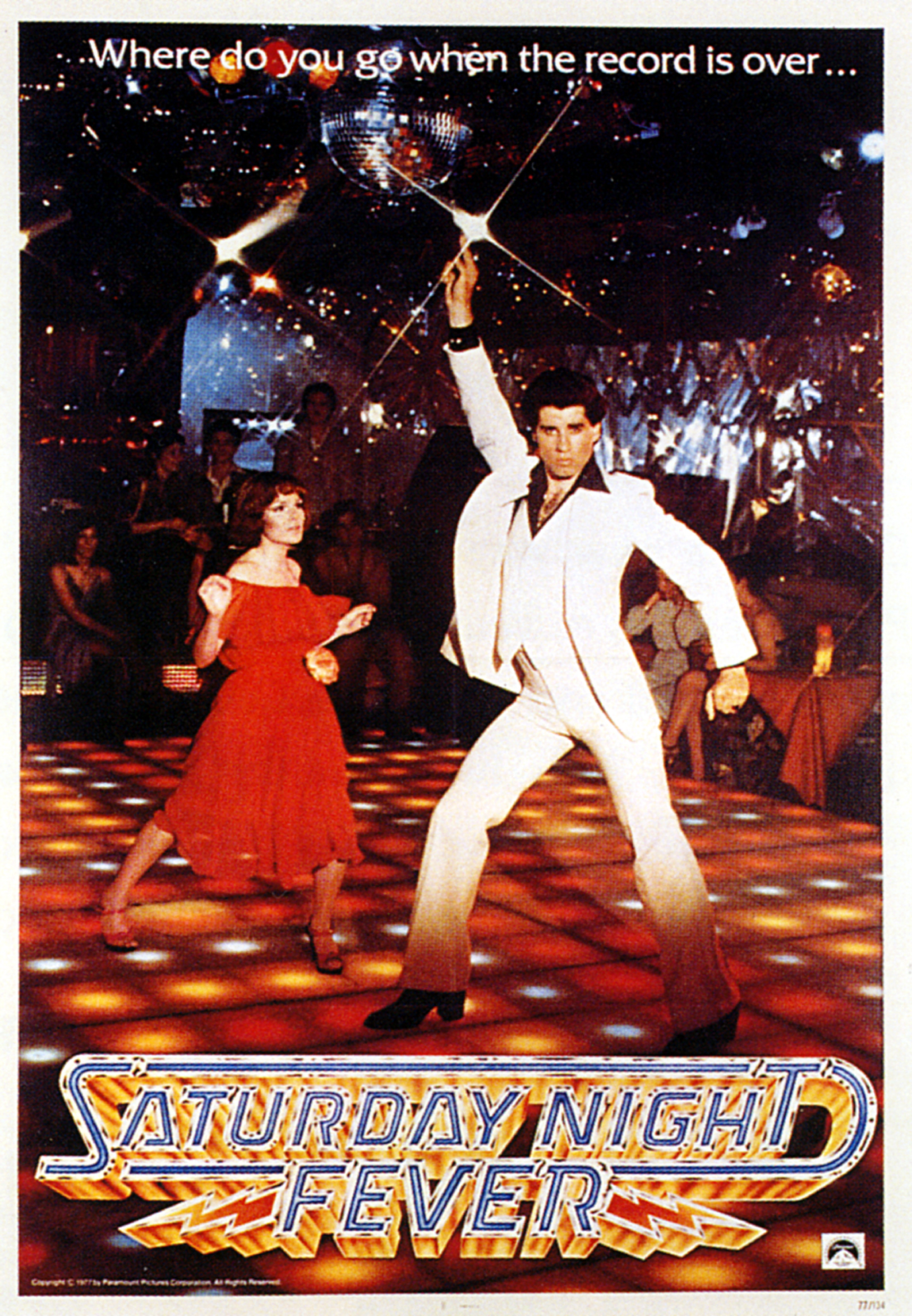
Saturday Night Fever (1977)
Saturday Night Fever, directed by John Badham, catapulted disco culture into the mainstream. John Travolta stars as Tony Manero, a young Brooklyn man whose weekend dance escapades at the local disco provide an escape from his mundane life. The film’s exploration of identity, ambition, and socioeconomic struggles resonated with audiences. Accompanied by the Bee Gees’ chart-topping soundtrack, including hits like “Stayin’ Alive,” Travolta’s electrifying performance earned him an Oscar nomination and solidified his status as a leading actor. Saturday Night Fever became synonymous with the disco era, influencing fashion, music, and dance floors worldwide. Getty Images / Nostalgic America, Inc.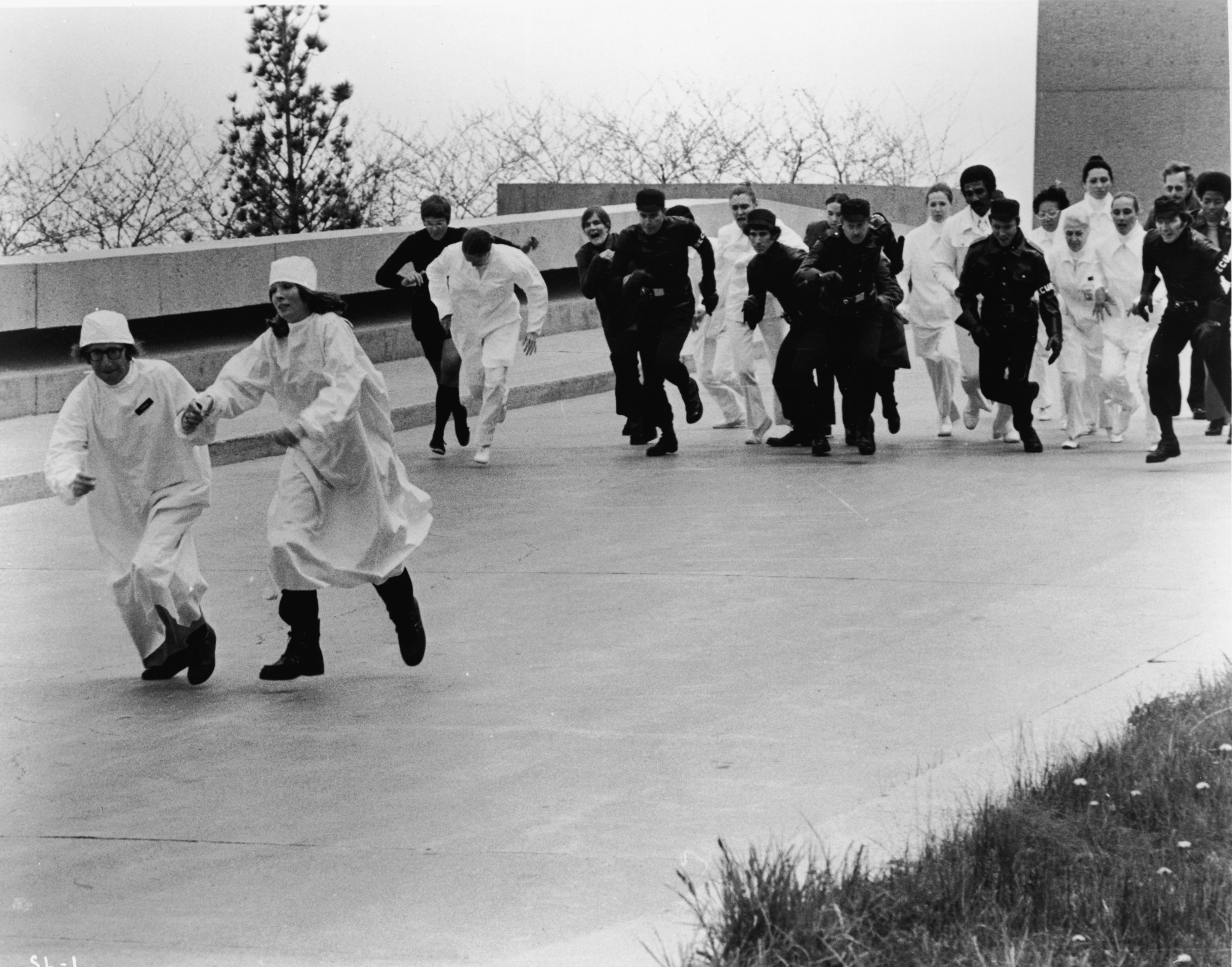
Sleeper (1973)
Woody Allen’s Sleeper is a sci-fi comedy that follows Miles Monroe (Allen), a man who wakes up 200 years after being cryogenically frozen to find a dystopian future ruled by an oppressive regime. Blending slapstick humor, political satire, and classic silent film homage, Allen’s film parodies contemporary culture and human folly. Diane Keaton co-stars as Luna, a poet who becomes Miles’ ally and love interest. Sleeper showcases Allen’s comedic genius and absurdist humor while also presenting a satirical look at power, conformity, and rebellion. It remains a standout in Allen’s filmography for its inventive storytelling and laughs. Getty Images / Nostalgic America, Inc.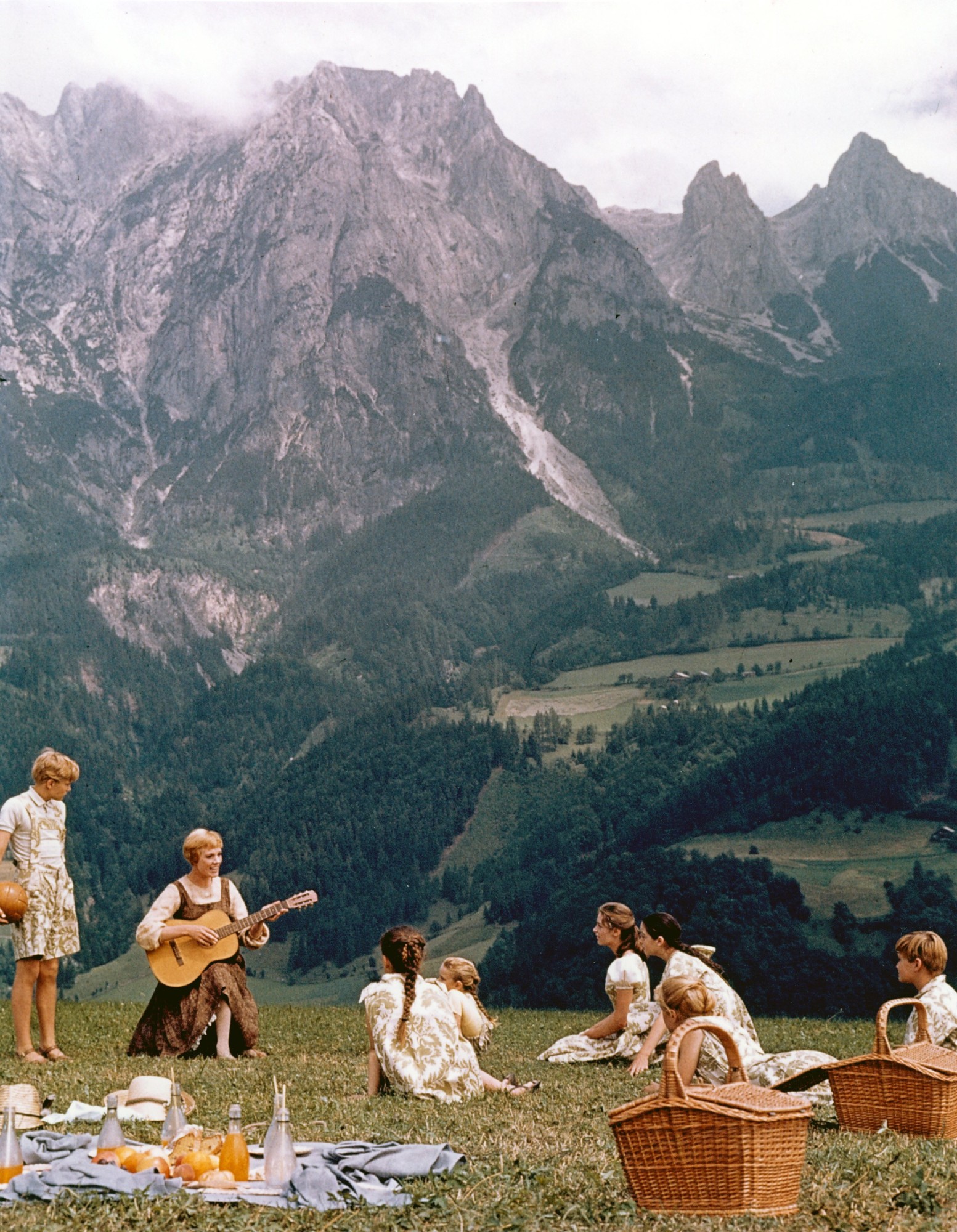
The Sound of Music (1965)
The Sound of Music, directed by Robert Wise, is a beloved musical based on the true story of the von Trapp family singers. Julie Andrews stars as Maria, a spirited novice nun who becomes governess to the seven children of the widowed Captain von Trapp (Christopher Plummer). Set against the backdrop of the looming Nazi occupation of Austria, the film is filled with memorable songs like “Do-Re-Mi” and “My Favorite Things” by Rodgers and Hammerstein. Winning five Academy Awards, including Best Picture, The Sound of Music has enchanted generations with its themes of love, courage, and resilience. Getty Images / Nostalgic America, Inc.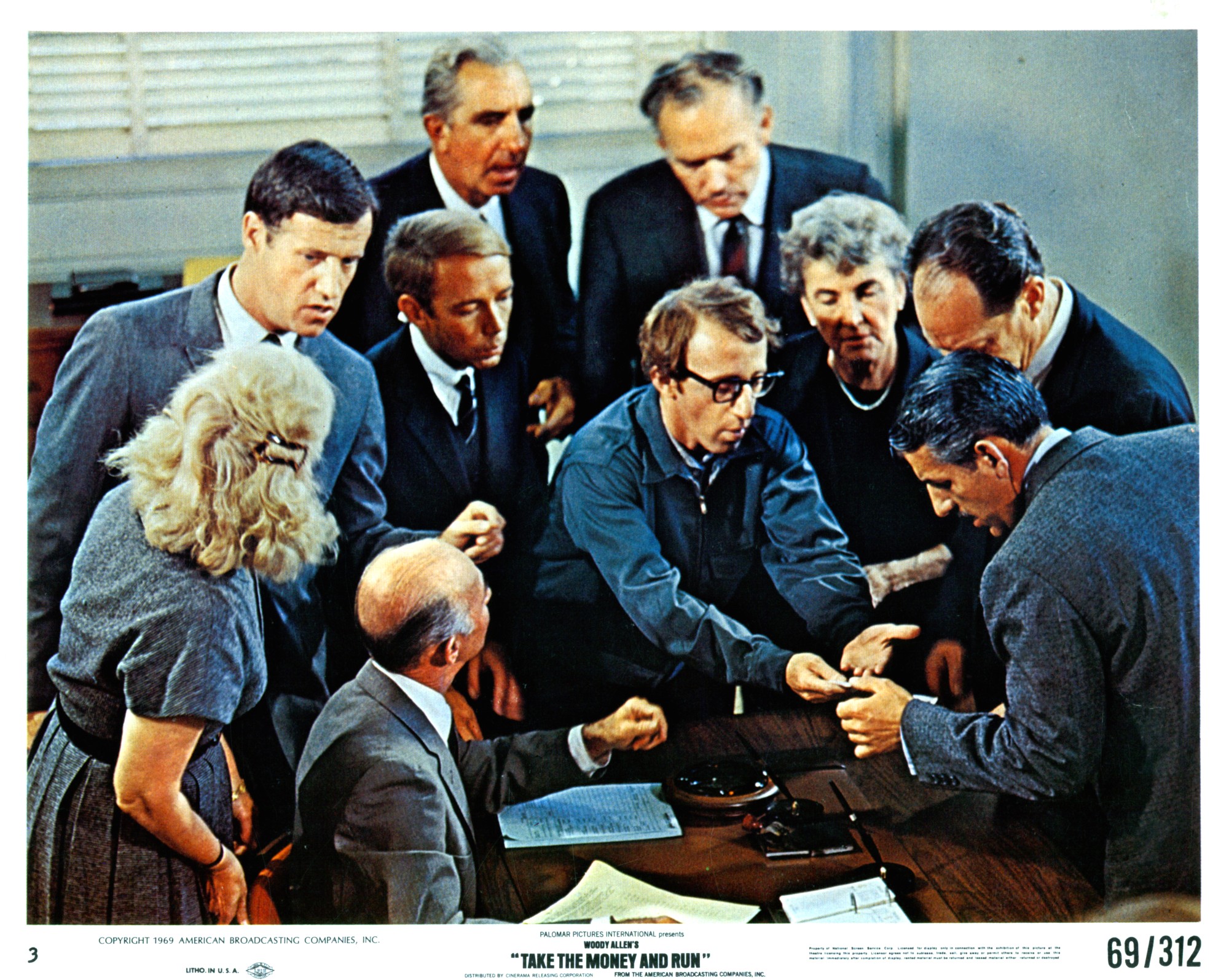
Take the Money and Run (1969)
Take the Money and Run is Woody Allen’s first directorial feature film, blending mockumentary and slapstick to tell the story of Virgil Starkwell (played by Allen), an inept criminal whose numerous failed attempts at theft and escape land him in comical predicaments. The film’s use of documentary-style interviews and sight gags set the stage for Allen’s unique brand of humor, mixing absurdity with deadpan delivery. The movie showcased Allen’s penchant for parody and clever writing, establishing him as a distinctive voice in comedy. Take the Money and Run remains an influential early work that helped shape modern mockumentary filmmaking. Getty Images / Nostalgic America, Inc.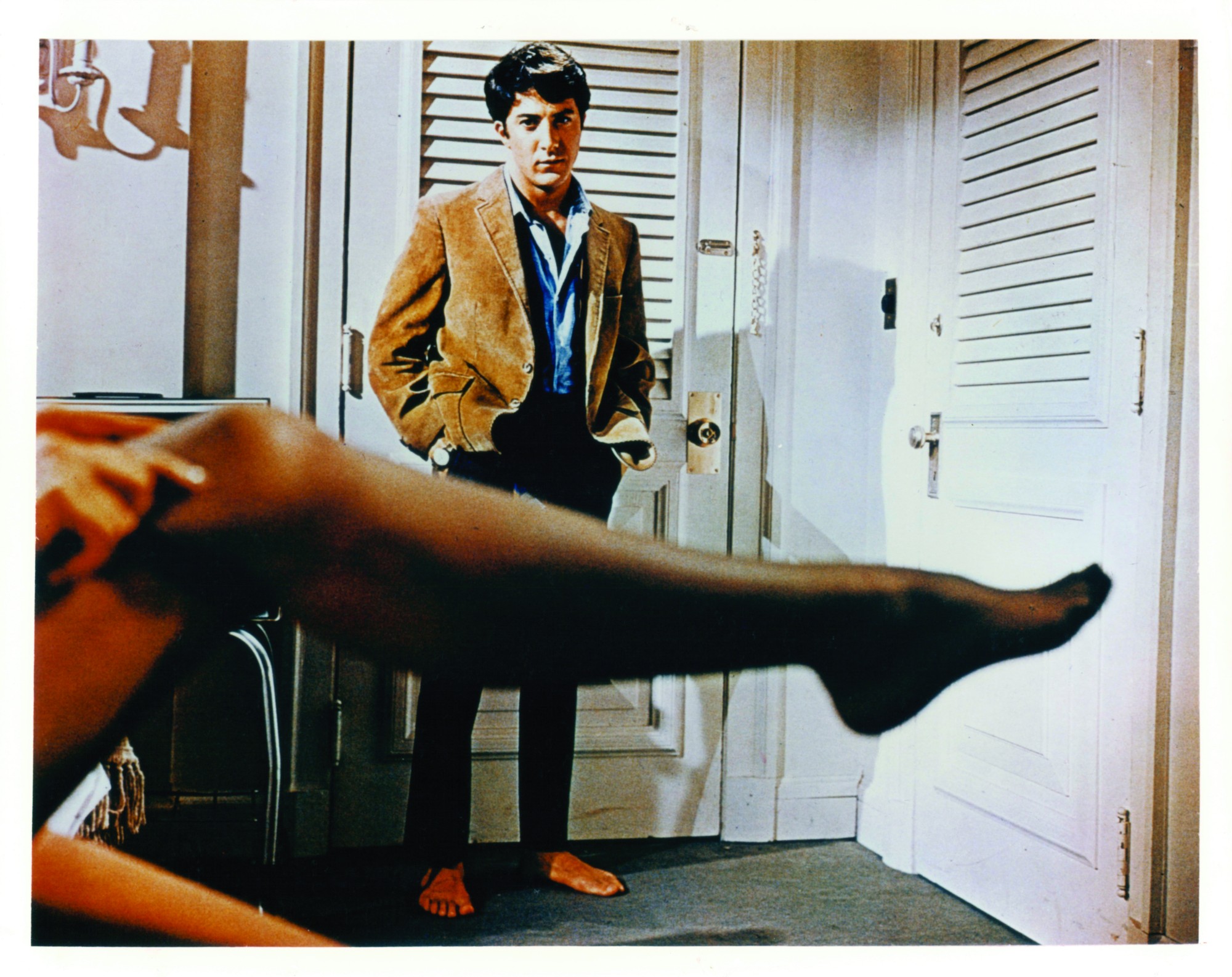
The Graduate (1967)
The Graduate, directed by Mike Nichols, is a satirical coming-of-age film starring Dustin Hoffman as Benjamin Braddock, a recent college graduate facing uncertainty about his future. His life becomes more complicated when he embarks on an affair with the older, seductive Mrs. Robinson (Anne Bancroft) and later falls for her daughter Elaine (Katharine Ross). The film’s iconic scenes, such as Benjamin’s “plastics” conversation and the final bus sequence, capture the disillusionment of youth in 1960s America. Simon & Garfunkel’s soundtrack, featuring “The Sound of Silence,” enhanced the film’s atmosphere. The Graduate won Nichols an Oscar for Best Director. Getty Images / Nostalgic America, Inc.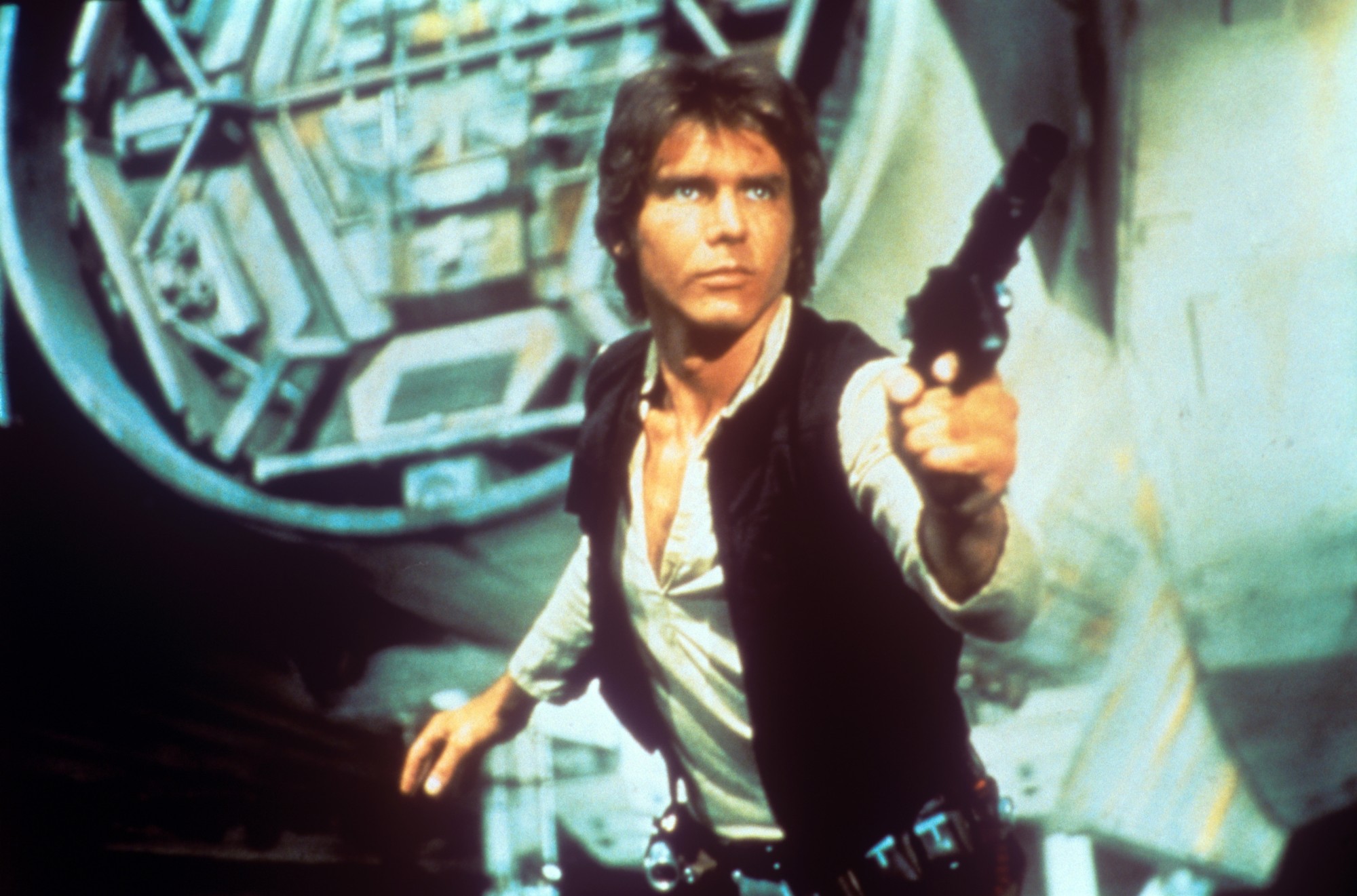
Star Wars (1977)
Star Wars, directed by George Lucas, revolutionized cinema with its epic space opera set in a galaxy far, far away. The story follows young Luke Skywalker (Mark Hamill), who joins Princess Leia (Carrie Fisher), smuggler Han Solo (Harrison Ford), and mentor Obi-Wan Kenobi (Alec Guinness) to battle the tyrannical Galactic Empire and its dark enforcer, Darth Vader. Getty Images / Nostalgic America, Inc.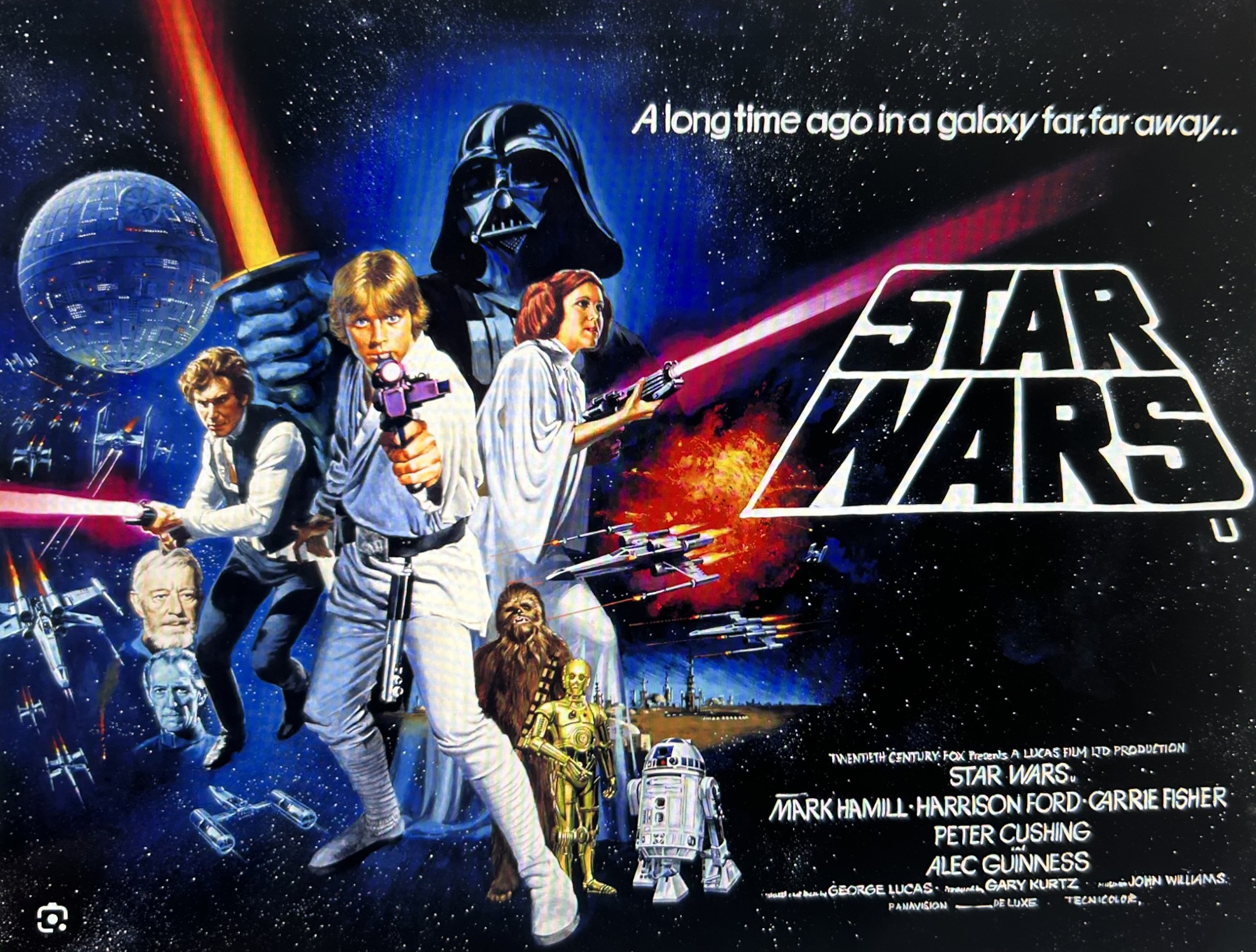
Star Wars
The film’s groundbreaking special effects, compelling characters, and John Williams’ unforgettable score redefined the sci-fi genre. Its success spawned an enduring franchise with sequels, prequels, and spin-offs, becoming a cornerstone of popular culture and setting new standards for blockbuster filmmaking. Getty Images / Nostalgic America, Inc.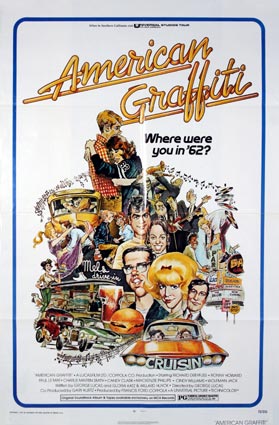
American Graffiti (1973)
American Graffiti, directed by George Lucas, is a nostalgic portrayal of teenage life in the early 1960s. Set over the course of a single night, the film follows a group of friends, including characters played by Richard Dreyfuss, Ron Howard, and Harrison Ford, as they cruise the streets, confront personal choices, and contemplate their futures. Getty Images / Nostalgic America, Inc.